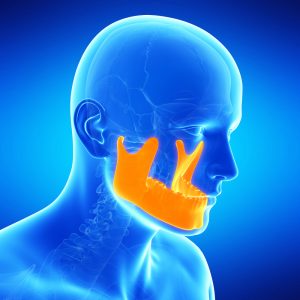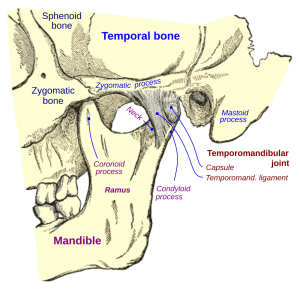Neuropathy in mouth is a condition that affects the nerves within the oral cavity, leading to unusual sensations such as tingling, burning, numbness, or pain. Though not as commonly discussed as neuropathy in the hands or feet, this condition can significantly impact daily activities like eating, speaking, and drinking. Understanding the causes, recognizing the symptoms, and exploring available treatment options are essential for managing this often overlooked but deeply uncomfortable issue. This article delves into everything you need to know about neuropathy in the mouth—what triggers it, how it feels, and the best ways to find relief.
Key Takeaways
- Oral neuropathy can cause significant discomfort, including burning or tingling sensations.
- Common causes include dental procedures, vitamin deficiencies, and underlying conditions like diabetes.
- Symptoms may vary widely, from mild irritation to severe pain.
- Accurate diagnosis often requires a comprehensive evaluation by a healthcare professional.
- Treatment options range from medication to lifestyle changes and sometimes surgical interventions.
- Living with mouth neuropathy involves managing symptoms and adopting prevention techniques.
- Consultation with an expert is crucial when experiencing persistent or severe symptoms.
Understanding Neuropathy in the Mouth
Neuropathy in the mouth can make daily life tough. It's key to know why it happens and how it works. This pain is often due to problems with the facial nerves. The trigeminal nerve is important here. It deals with feeling in the face, teeth, and gums.
When the trigeminal nerve has issues, you might feel sharp pain or burning. You might also feel numb. These issues can come from injuries, dental work, infections, or diabetes. Dealing with facial nerves and pain pathways is tricky. But it is very important to figure out the cause for better treatment.
Common Causes of Oral Neuropathy
Oral neuropathy is when nerves in the mouth get damaged. This can really affect daily life. Dental surgery gone wrong is a big cause. Sometimes, getting work done on teeth and gums can hurt nerves. This can lead to a lot of pain or discomfort.
Being squeezed is another way nerves get hurt. This happens when something presses on mouth nerves. Badly aligned teeth, tumors, or swelling from tooth infections can press on nerves.
Certain serious health problems can also cause this nerve pain. Issues like multiple sclerosis or specific tumors can trigger it. These health issues can make the mouth's nerve pain worse.
Knowing what causes oral neuropathy is important. Problems like dental surgery mishaps and too much pressure on nerves are to blame. By understanding these, people can look after their mouth better. They can also get the right help when needed.
Symptoms of Mouth Neuropathy
Mouth neuropathy can be very distressing. It's vital to know the symptoms of trigeminal neuralgia. People often feel sharp, shooting pain like electric shocks in their face.
This pain can make daily tasks like brushing teeth or putting on makeup very hard.
One mouth nerve pain symptom is feeling a burn or tingle in your mouth. This can affect your tongue, gums, and the roof of your mouth. Eating and talking can become tough, making life harder.
A key point about neuropathic pain features is pain comes on its own, suddenly. Plus, even a light touch can cause big discomfort. This shows how severe this pain can be.
Finally, these symptoms of trigeminal neuralgia might look like dental issues. So, a full medical check is needed. This helps tell the difference between mouth nerve pain symptoms and dental problems.
Diagnosing Neuropathy in the Mouth
Finding out if someone has neuropathy in the mouth takes many steps. A detailed check-up by a nerve doctor is needed. First, the doctors learn about the patient's symptoms by talking with them.
They also look for signs of a condition called trigeminal neuralgia. To do this, they do tests that are special for this issue. These include MRI scans that show pictures of the nerve.
Sometimes, they use a test called electromyography (EMG). This test checks the muscles and nerves' electric signals. It helps find where and how bad the neuropathy is. They use many tools to make sure my diagnosis is right.
Figuring out mouth neuropathy early can really help make treatments work better. Diagnosing conditions like trigeminal neuralgia takes careful work. But it helps professionals choose the best treatment for each person.
Treatment Options for Neuropathy in Mouth
Finding the right treatment for mouth neuropathy is key. It helps manage pain and discomfort. There are many options based on how severe it is and what symptoms you have. For example, managing trigeminal neuralgia often means using medications. These can lessen nerve pain and make life better.
Medicines like anticonvulsants or antidepressants are common. They change how pain signals are sent. This offers big relief from mouth pain. These meds are good because they help with pain and other symptoms too.
Putting medicine directly on the spot that hurts is another way to help. Capsaicin or lidocaine gels work well for this. This choice is good for people who don't like taking pills.
Sometimes, surgery is needed for severe cases. Options include microvascular decompression or gamma knife radiosurgery. These surgeries are a big part of treating trigeminal neuralgia. They can really help patients feel better for a long time.
Making changes to how you live is also important. See your dentist regularly, keep your mouth clean, and avoid things that make it worse. These steps lower pain and stop more problems from happening.
Living with Mouth Neuropathy
Having mouth neuropathy can be tough but it's not impossible to manage. Making good lifestyle changes is key. It helps to stay away from hot or spicy foods to ease discomfort. Eating soft foods also helps by causing less irritation.
Dealing with chronic pain means using medicine and taking care of yourself at home. I make sure to keep my mouth clean to ease some symptoms. Brushing gently with a soft-bristled toothbrush really helps me every day.
It's also important to reduce stress to manage mouth neuropathy. I find meditation and easy yoga very helpful to stay calm. Seeing my doctor regularly helps keep my pain management plan on track.
Being willing to change daily routines is important. For example, I avoid very cold drinks because they can cause sharp pain. Drinking plenty of water and eating a healthy diet are good for mouth health.
By making these lifestyle tweaks, life with mouth neuropathy can get better. Small changes can really help deal with the pain.
Prevention Tips for Oral Neuropathy
Keeping your mouth healthy is key to stopping trigeminal neuralgia. It's important to see your dentist often. Regular cleaning and check-ups are super helpful. Also, brushing and flossing a lot can help you avoid nerve damage.
Be quick to get help if your mouth hurts for a while. Drinking enough water, eating well, and not eating very hot or cold foods is good. Doing these things before problems start is important. It helps prevent nerve pain in your face and keeps your mouth healthy.
When to See a Doctor About Mouth Neuropathy
Knowing when to get help for mouth pain is key to managing neuropathy well. If you have ongoing or really bad symptoms like extreme pain in the mouth, trouble chewing, or feeling numb and tingly in your mouth that won't go away in a few days, it's important to see a doctor. These signs might mean you have a serious issue that needs quick care.
Seeing a specialist is important if normal painkillers and home treatments don't work. A dentist or neurologist can figure out what's wrong and suggest the best treatment. They might do several tests to find out why you're feeling nerve pain and make a plan that fits your needs.
Sometimes, issues like diabetes, not having enough vitamins, or autoimmune diseases might make your symptoms worse. So, deciding when to get treatment for nerve pain should also think about other health problems you might have. Getting help early can stop neuropathy from getting worse and make your life much better.
Finding Relief and Support for Neuropathy in the Mouth
Living with neuropathy in the mouth can be frustrating and isolating, especially when it interferes with essential activities like eating, speaking, and smiling. But with the right support and expert care, managing this condition is entirely possible. Whether your symptoms are mild or severe, early diagnosis and personalized treatment can make a world of difference.
At Raleigh Facial Pain Center, we understand how complex and challenging chronic oral and facial pain can be. Our highly trained team—led by Dr. Yount, one of only four board-certified Orofacial Pain Specialists in North Carolina—is committed to helping you find relief. From burning mouth and atypical toothaches to jaw dysfunction and sudden bite changes, we offer comprehensive, compassionate care tailored to your unique needs.
Let us walk with you through your healing journey. At Raleigh Facial Pain Center, you’re not just a patient—you’re a partner in care. Contact us today to know more.



